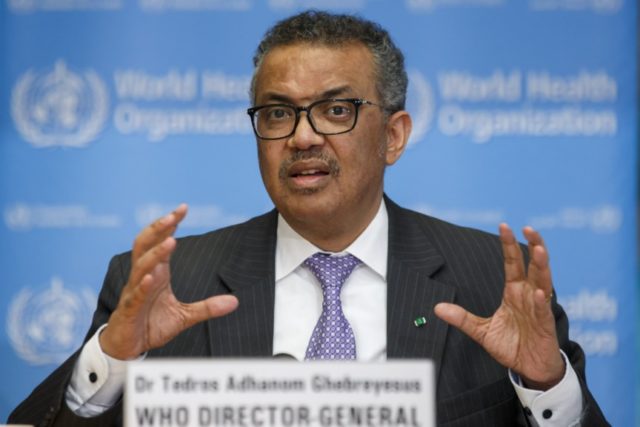Dr. Tedros Adhanom Ghebreyesus, director-general of the World Health Organization (WHO), said Friday there are “many other health issues” facing people in the world besides the novel coronavirus that causes the COVID-19 infection.
The head of the U.N. global public health agency during a press conference in Geneva said:
I want to start today by acknowledging that even though COVID-19 has captured the world’s attention, there are still many other health issues people continue to face every single day, and that WHO is continuing to work on.
Babies are still being born. Essential surgery is continuing. People still need emergency care after road traffic crashes. People still need treatment for cancer, diabetes, HIV, malaria and many other diseases.
WHO declared Wednesday the global coronavirus crisis is now a pandemic.
In declaring the COVID-19 infection a pandemic, Tedros said WHO is “deeply concerned by the alarming levels of spread and severity” of the outbreak, and expressed concern about “the alarming levels of inaction.”
“We have, therefore, made the assessment that COVID-19 can be characterized as a pandemic,” he said.
“All countries can still change the course of this pandemic,” Tedros added, “if countries detect, test, treat, isolate, trace and mobilize their people in the response.”
Tedros also said Friday that Europe is now the “epicenter” of the pandemic.
“More cases are now being reported [in Europe] every day than were reported in China at the height of its epidemic,” he said.
Tedros urged nations to take a comprehensive approach to fighting the virus. He said:
Not testing alone, not contact tracing alone, not quarantine alone, not social distancing alone, do it all. Any country that looks at the experience of other countries with large epidemics and thinks that won’t happen to us is making a deadly mistake, it can happen to any country.
Social distancing only slightly “slows down the virus so your health system can cope,” said Dr. Mike Ryan, the executive director of WHO’s emergencies program, reported CNBC.
“The virus will always get you if you don’t move quickly,” Ryan said, discussing lessons health officials learned from the Ebola outbreak.

COMMENTS
Please let us know if you're having issues with commenting.